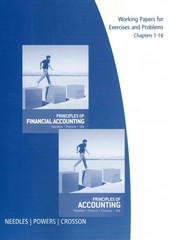Question
A machine was purchased a year ago for $90,000. We just found out that a new better machine is available but costs $120,000 The new
A machine was purchased a year ago for $90,000.
We just found out that a new better machine is available but costs $120,000
The new machine would be depreciated over 10 years after which it would have a salvage value of $20,000 (that would be realized in the final year of its life).
We estimate that the new machine would contribute EBITDA of $50,000 per year for the next 10 years compared with an EBITDA of only $15,000 per year from the current machine (also for the next 10 years).
The current machine is being depreciated on a straight-line basis over a useful life of 11 years after which it will have no salvage value, and so the depreciation expense on the old machine is $8,182 per year.
All other expenses are identical for the two machines.
We only need one of these machines and so, if we buy the new machine we would sell the old one. However, we can expect a sales price of only $40,000.
Our corporate tax rate is 38% and the cost of capital for machines of this type is 12%.
Should we go ahead with the purchase of the new machine and the sale of the old one?
Note: Assume that:
(A) when we sell an asset it is taxed on the difference between the sales price and the book of the asset
(B) We are a profitable company and are able to make use of taxes losses to offset profits in other parts of the company.
Step by Step Solution
There are 3 Steps involved in it
Step: 1

Get Instant Access to Expert-Tailored Solutions
See step-by-step solutions with expert insights and AI powered tools for academic success
Step: 2

Step: 3

Ace Your Homework with AI
Get the answers you need in no time with our AI-driven, step-by-step assistance
Get Started


